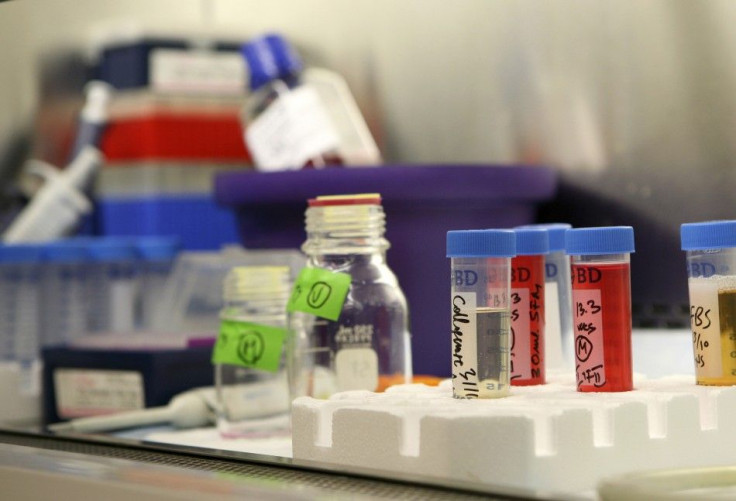Scientists Use Stem Cells To Develop Human Blood In Labs

A team of Scottish scientists have been working on developing a viable method by which properly cultured, embryonic stem cells can be used to create artificial human blood. Joanne Mountford of the University of Glasgow, who is also the lead scientist of this project at the Scottish National Blood Transfusion Service, is reported to have said, "Because we make them from human cells they are as nature intended. It's the same thing your body makes but we're just doing it in a lab."
She goes on to explain some of the practical application and advantageous of lab-grown blood by stating, "If I take a bag of blood from your arm, some cells would be brand new. But some of them would be 110 to 120 days old and about to die. These cells won't do you much good." Lab-grown blood could provide patients with blood that would be even younger and healthier when compared to natural human blood.
Artificially grown blood could also ensure that people with rare bloody types find and have easier access to their blood type. Successful completion of this project would result in, possibly, a chance to manufacture a limitless supply of rare blood types. The demand and supply relationship could undergo a huge change for the better. This particular project has the potential to alter the medical industry and save lives simultaneously.
Stem cell research is perhaps one of the most controversial and fastest developing concept in the field of medical science. Every day, scientists and biologists are coming up with revolutionary ideas on how best to use stem cells to develop lab-grown artificial human organs which can potentially save millions of lives around the world. One such development, is that of utilising stem cells to artificially grow human blood. The application of this concept could be unlimited.
The research may take some time to come into practical fruition however,. Muntoford said, "There are many hurdles to overcome in the process of turning a stem cell into a useful red blood cell, and even more challenges we face in trying to ramp up production to an industrial scale." Although, it may take some time for the technology to be ready for human testing, the future of medical science seems to be one step closer to understanding and recreating the complexities of the human body.





















